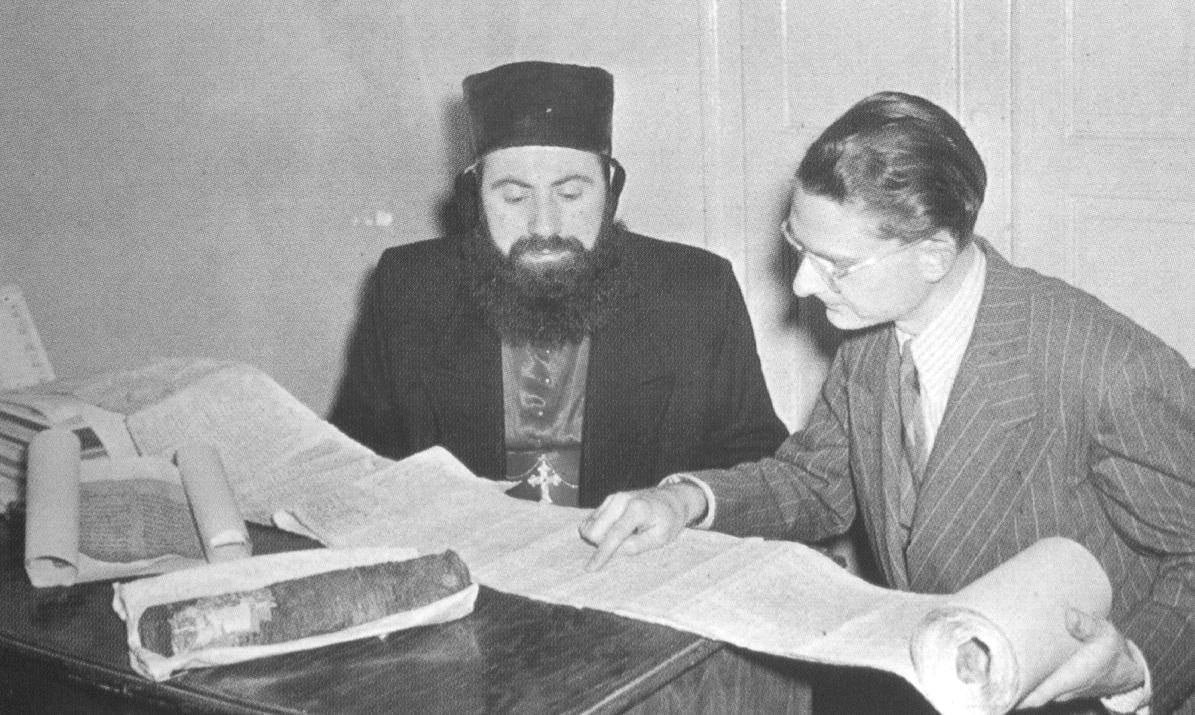Christianity’s Dangerous Idea
The Bible is plain to read and plain to understand by ordinary people in all essential matters pertaining to salvation (Articles of Religion, Article 6).
The Pelagian Default
Lazarus did not come out of the grave because he got his free will in motion to choose resurrection; it was because he received an external command from God’s word, which does what it says. - Steven Paulson
The Dead Sea Scroll Revealed
The Dead Sea scrolls gives us the Old Testament 1,000 years closer to its original autograph!
Pelagius is My Favorite
Christians love semi-pelagianism because we don't want to admit that the corpse on the couch is actually dead, but only faint and needing some fresh air.
All Those Contradictions!
The Anglican formularies give us an “Anglican way” of reading and interpreting Holy Scripture.
Freedom of an Unfree Will
When we recognize the Grand Canyon-size gulf between us and God, we are forced to look for a solution beyond our human capacity and righteousness: to a God who saves us to the uttermost - who alone has the power to bring dead people back to life.
Catholic or Protestant?
Michael Nazir-Ali did the right thing if his heart is not fixed on Anglican’s commitment to the primacy of Holy Scripture, and to the doctrines of justification by grace through faith alone, the universal priesthood of all believers, and to a sacramental understanding that expresses these core biblical teachings.
Jane Seymour
Jane Seymour gave King Henry VIII his only living legitimate son, the future King Edward VI.
God and Architecture
A person’s ability to worship is a matter of heart, and a good-hearted Christian can worship at the tin-roofed Cathedral in Jos, Nigeria as easily as at Westminster Abby.
Tyndale the Outlaw Reformer
The law explains God’s expectations, reveals our inability to live up to the required standard of perfection, and sends us running with hair-on-fire desperation for a Savior.
The Elizabethan Settlement
Anglican theology and worship as seen in the Elizabethan Settlement is thoroughly biblical, beautiful, and generous in its balance between doctrinal essentials and liberty in nonessentials.
Who’s your Righteousness?
"The Lord our Righteousness" was the sermon preached March 20, 1757 at St. Mary's Church in Oxford. The preacher, William Romaine, so offended just about everyone that he was invited to never preach there again.
Jonathan Linebaugh writes about the “law & gospel” distinction in Thomas Cranmer
It is worth recalling that in Cranmer’s carefully ordered collection of homilies, the “Homily of Salvation” followed the homily on the “Misery of Mankind.” This reflects Cranmer’s Reformational understanding of the order and function of the law and the gospel.















